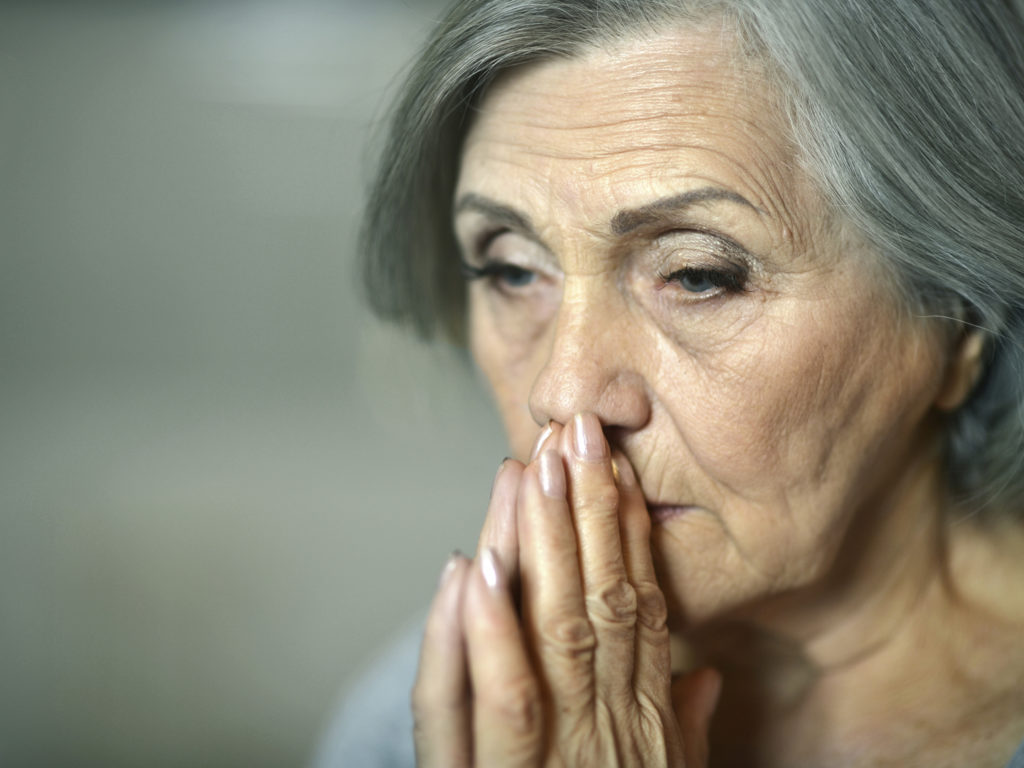One in five people over the age of 55 will experience a mental health issue, according to the American Psychological Association. These conditions can at times threaten a senior’s safety and willingness to engage in normal daily activity, resulting in a detachment from others. If you think your parent may be suffering from a senior-related mental health concern, here is some advice on how you can facilitate a better quality of life for your loved one, and ensure they do not become isolated in their own home.

Recognizing the Signs of Mental Illness
It’s important to be aware of the signs and symptoms of disorders so that you can get a proper diagnosis from a medical doctor. The most common concerns, perhaps unsurprisingly, are related to cognitive impairment due to dementia-causing illnesses such as Alzheimer's Disease. Older people are also at a higher risk of anxiety disorders, such as Depression, Post-Traumatic Stress Disorder, and Obsessive Compulsive Disorder (including hoarding).
If you have noticed behavioral changes that display some of these symptoms, contact your parent’s doctor:
- Withdrawal from social occasions
- Sleep pattern changes - fatigue, low energy, sleeping a lot, or manic episodes (especially in the middle of the night)
- Confusion, issues with concentration, disorientation
- Memory loss, in particular short-term memory
- Forgetfulness, or difficulty completing daily tasks
If your mom is showing any of the above symptoms, you and your family may be worried about how she is going to be able to cope. Cognitive issues and forgetfulness can create hazardous situations at home that can cause serious accidents, and your mom may be less able to complete simple tasks or to leave the house on her own, increasing the risk of depression and isolation.
How Home Care Can Help Maintain Quality of Life
It is not always possible for adult children to provide the daily support required to keep their parent safe and socially active. This is where a Home Care company can help.
A Home Health Aide can enable your mom to stay at home and receive care for her mental health issues in a safe, familiar environment. Your mom can keep daily routines, which can be especially important for those people who have dementia, as it can help reduce anxiety and confusion. Importantly, they will also be a compassionate, friendly face your mom can form a bond with, and can provide the companionship needed when family caregivers are not available.
A reputable Home Care Aide will take an active interest in your mom’s life, and can:
- Provide companionship in the home
- Accompany your mom on trips to the store, library or place of worship
- Provide encouragement to reconnect with friends and relatives
- Help to pursue hobbies
- Encourage engagement in activities at local senior centers
- Help your mom stay involved in cultural and spiritual communities by accompanying or transporting her to meetings and events
- Develop and maintain social routines
- Remind your mom of times and dates of upcoming social engagements
This assistance will mean your mom remains active and engaged in social activities, and can enjoy a better quality of life, both inside, and outside, her home.
A Home Care company can also provide the support your mom needs regarding practical tasks such as:
- Personal care
- Light housekeeping
- Medication reminders
- Ensuring your mom is eating regular, healthy meals
- Making sure your mom is safe at home and doesn't wander off the premises
A tailored Home Care plan can result in meaningful engagement, and should be flexible enough to meet your mom’s evolving needs as her illness progresses.
Dementia-related depression, anxiety and other mental health issues can be challenging for your mom, and for you as a family caregiver, but with the right support and a friendly professional to turn to, she can continue to live a happy, engaged and meaningful life in her own home, for years to come.
To find out more about how Ezra Home Care can help your parent with mental health issues live safely and maintain their independence, please organize a call and speak with one of our dedicated staff:


 Tweet
Tweet
 Share
Share



